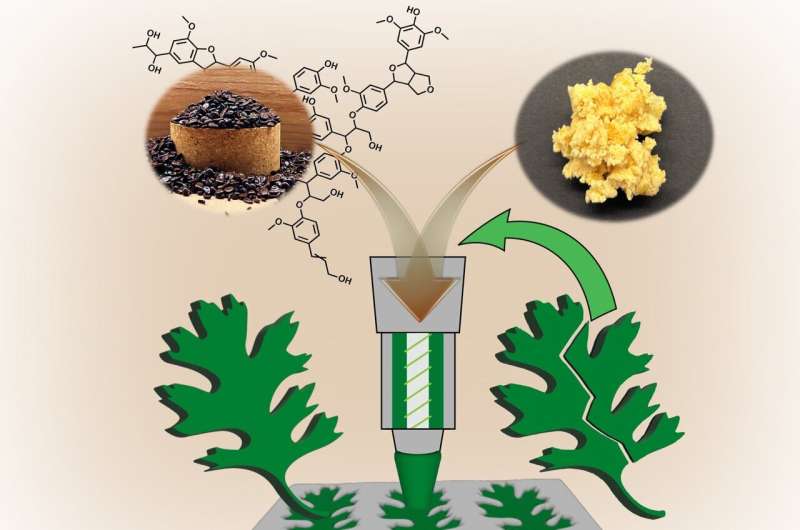This article has been reviewed according to Science X's editorial process and policies. Editors have highlighted the following attributes while ensuring the content's credibility:
fact-checked
trusted source
proofread
'Smart' chemistry allows recycling of networked rubbery materials

Oak Ridge National Laboratory scientists ingeniously created a sustainable, soft material by combining rubber with woody reinforcements and incorporating "smart" linkages between the components that unlock on demand. The smart linkages allow heat to unlock the structure, enabling the material to flow for rapid circular manufacturing, which essentially recycles materials back into the economy instead of discarding them.
The work is published in the journal Polymer Chemistry.
"We developed a 'smart' polymer using 100% bio-based feedstocks in a solvent-free reactive process," said Sargun Rohewal, a graduate student at the University of Tennessee-Oak Ridge Innovation Institute's Bredesen Center who works with Amit Naskar, leader of ORNL's Carbon and Composites group.
"Unlike nonrecyclable conventional elastomers, ORNL's material—when heated above 250 degrees Fahrenheit—swiftly transitions to a reformable material that can be injected into molds or 3D printed."
Next, the team will study how to tailor these recyclable elastomers for their enhanced mechanical performance and increased heat resistance. "That knowledge would allow diverse fiber-reinforced composite products, their welding and 3D printing," Naskar said.
More information: Sargun Singh Rohewal et al, Fast relaxing sustainable soft vitrimer with enhanced recyclability, Polymer Chemistry (2024). DOI: 10.1039/D3PY01177A
Provided by Oak Ridge National Laboratory





















